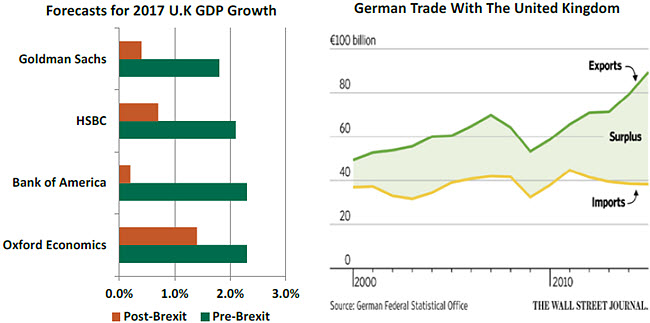When I was growing up, there were only five television stations available. We got two bursts of news: national news at around 6 p.m. and local news at 10 p.m. We didn’t always have up-to-the-minute information, but we did have some time to reflect.
Today, by contrast, we are overloaded with high-frequency communication. We have business networks, countless internet sites and social media all providing continuous news and opinion. Some still exercise some editorial influence before publication, but many don’t. At times of high uncertainty, the dissemination of “information” can create more confusion than clarity.
The downside of today’s media model has been on prominent display in the days since voters in the United Kingdom (or should I say 36% of registered voters in the United Kingdom) expressed a wish to depart the European Union (EU). In the aftermath, analysts began to project a wide range of separations occurring within regions and countries. It was as if the map of Europe were heading back to its standing of 400 years ago.
There is certainly much that is still up in the air. But allow us to offer an update on the key issues for Europe in the wake of “Brexit.”
1. The U.K. economic outlook has become very tenuous. Forecasts for gross domestic product (GDP) growth were revised substantially downward in the past weeks. Firms desiring to ensure continued access to the EU market may move some operations out of the United Kingdom. The United Kingdom may have to renegotiate trading terms with a series of global counterparties. And the heightened level of uncertainty won’t help business or consumer spending.

This is all bad for the United Kingdom, but also bad for those who count the country as a client. The United Kingdom is Germany’s third-largest export market, which will undoubtedly influence German Chancellor Angela Merkel’s posture in departure negotiations. She will have to talk tough publicly, as a warning to other potential separatists. But behind closed doors, she (and other EU leaders) may be more accommodating.
It may seem far off at the moment, but there are at least a few reasons to think that a productive new relationship can be defined. But that may take a while, because …
2. The politics on both sides of the separation are deeply complex. After some initial turmoil, the London Stock Exchange enjoyed a nice recovery. But the political turmoil in the United Kingdom could drag on for several more months, heightening uncertainty.
With U.K. Prime Minister David Cameron set to step down, candidates for Tory primacy stepped forward on Thursday. Unexpectedly, the main favorite, Boris Johnson, ruled himself out of contention. A new leader will be chosen at the party’s Congress in October. Meanwhile, the opposition Labour party is on the brink of complete implosion. Its leader, Jeremy Corbyn, lost a vote of no confidence by an overwhelming margin last week but has refused to step down.
In the northernmost part of the country, Scottish First Minister Nicola Sturgeon has pledged to protect Scotland’s interests in the European Union. Sturgeon has already voiced the idea of a second Scottish independence referendum, a scenario which now looks increasingly likely.








